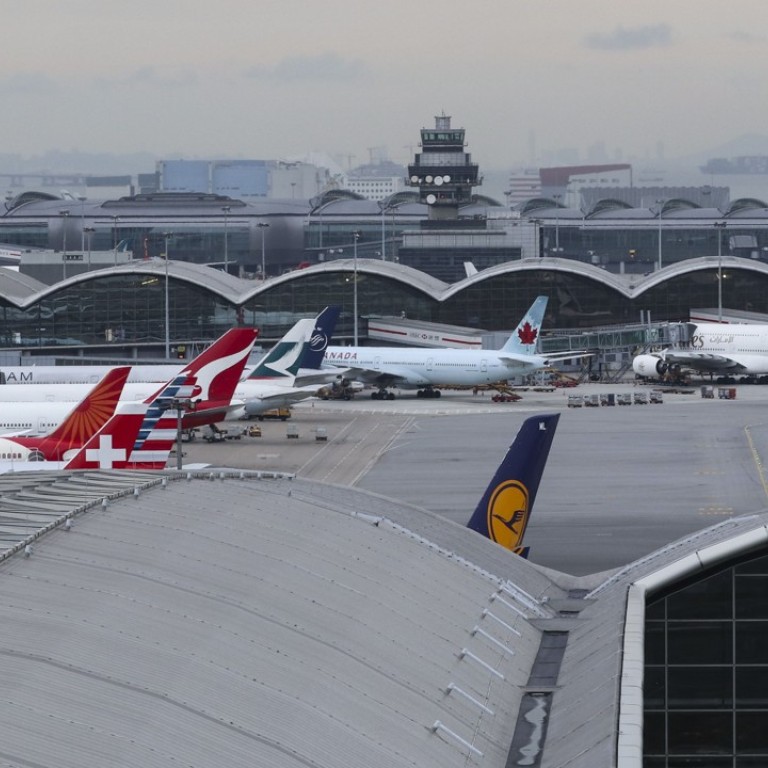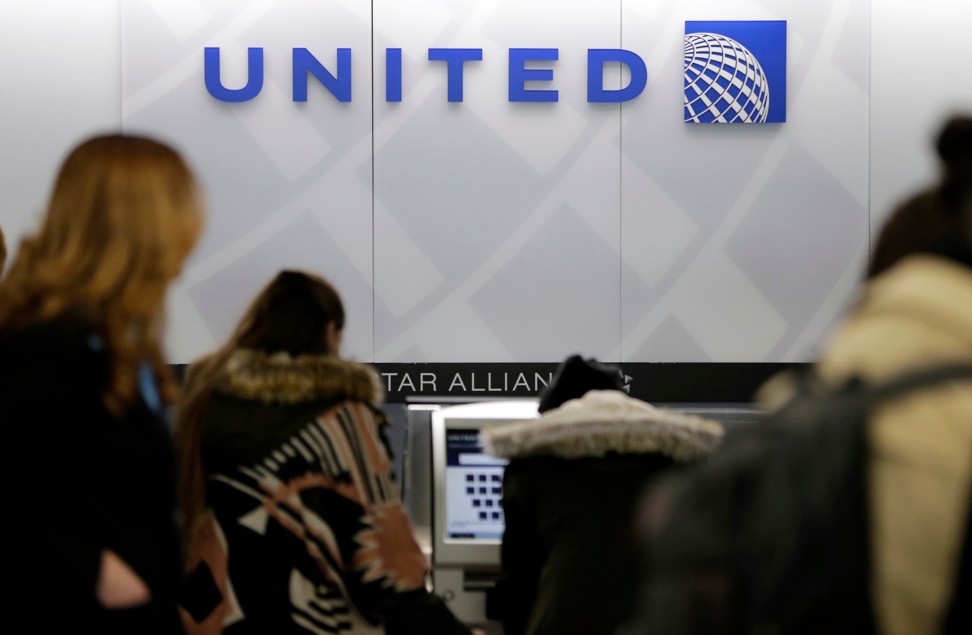
US, China in fresh row as Beijing tells foreign airlines they will be punished for failing to respect territorial claims, report says
Government says it will use new social credit regulation to hit back at carriers that refer to Taiwan, Hong Kong or Macau as independent territories
Foreign airlines that refer to Taiwan, Hong Kong or Macau as being independent from China could face punishment under a new social credit regulation issued by Beijing late last year.
According to a report by The Washington Post, the Civil Aviation Administration of China sent a letter to 36 carriers last month saying that companies that failed to acknowledge the one-China principle may be subjected to closer administrative scrutiny or even given demerits on their credit records.
The article included a copy of a letter, written in Mandarin, which the newspaper said it had obtained from United Airlines, one of the original recipients. Phone calls and faxes from the South China Morning Post to the administration on Sunday and Monday went unanswered.
Koji Nagata, United Airlines’ director for Asia-Pacific corporate communications, told the Post, however, that the company had passed the letter on to the White House.
“As to this matter, we have deferred it to the US Government since this is a diplomatic issue to be resolved among governments,” he said in an email.
On Monday, the US embassy in Beijing joined the war of words by publishing a version of the White House statement in Mandarin on Weibo, the Chinese equivalent of Twitter.
As of Monday afternoon, the post had attracted more than 23,000 comments, most of them critical of the US.
“Go away if you are not willing to do business, or abide by our laws,” said one, while another called for independence for the US states of Hawaii, Alaska, California, Texas and New Mexico.
A report by The Sydney Morning Herald on Monday said Australia’s Foreign Minister Julie Bishop had warned Beijing against using threats to pressure Qantas to adopt the Communist Party’s political line by referring to Taiwan as part of mainland China rather than a separate country.
Qantas confirmed last week it was one of the carriers that had received a letter from the CAAC.
While the punishments foreign airlines might face for breaching the new social credit regulations are vague, Alexander Wolf, a former US diplomat who used to work in the Chinese capital, said it was unlikely any of them would deliberately go against Beijing’s wishes.
“You would expect the Chinese government to retaliate, such as shutting down websites or banning certain routes … but there is no reason why these companies wouldn’t comply because their priority is to the shareholders, not to abide by US government foreign policy,” said Wolf, who is now the Hong Kong-based senior emerging market economist for Aberdeen Standard Investment.
Sow Keat Tok, an international relations professor at the University of Melbourne in Australia, said the warning from the aviation administration was simply the latest effort by Beijing to impose “soft sanctions” on foreign companies in line with its rising economic power.
“[President] Xi Jinping has been building up expectations over the past five or six years, so China has to show it is a big power, with a big say in world affairs, and can defend its interests,” he said.
Meanwhile, Wang Yi-kai, a Taiwanese social activist, who launched the satirical “Apologise to China” contest on Facebook in 2016, said that amid rising nationalist sentiment, even those foreign companies that abided with Beijing’s one-China policy would find themselves being reprimanded for some other misdemeanour.
“China is like a crying baby that is demanding sweets,” he said. “You can’t just keep giving in without explaining what is right and what is wrong, otherwise it will only cry louder in the future.”
Additional reporting by Danny Lee



